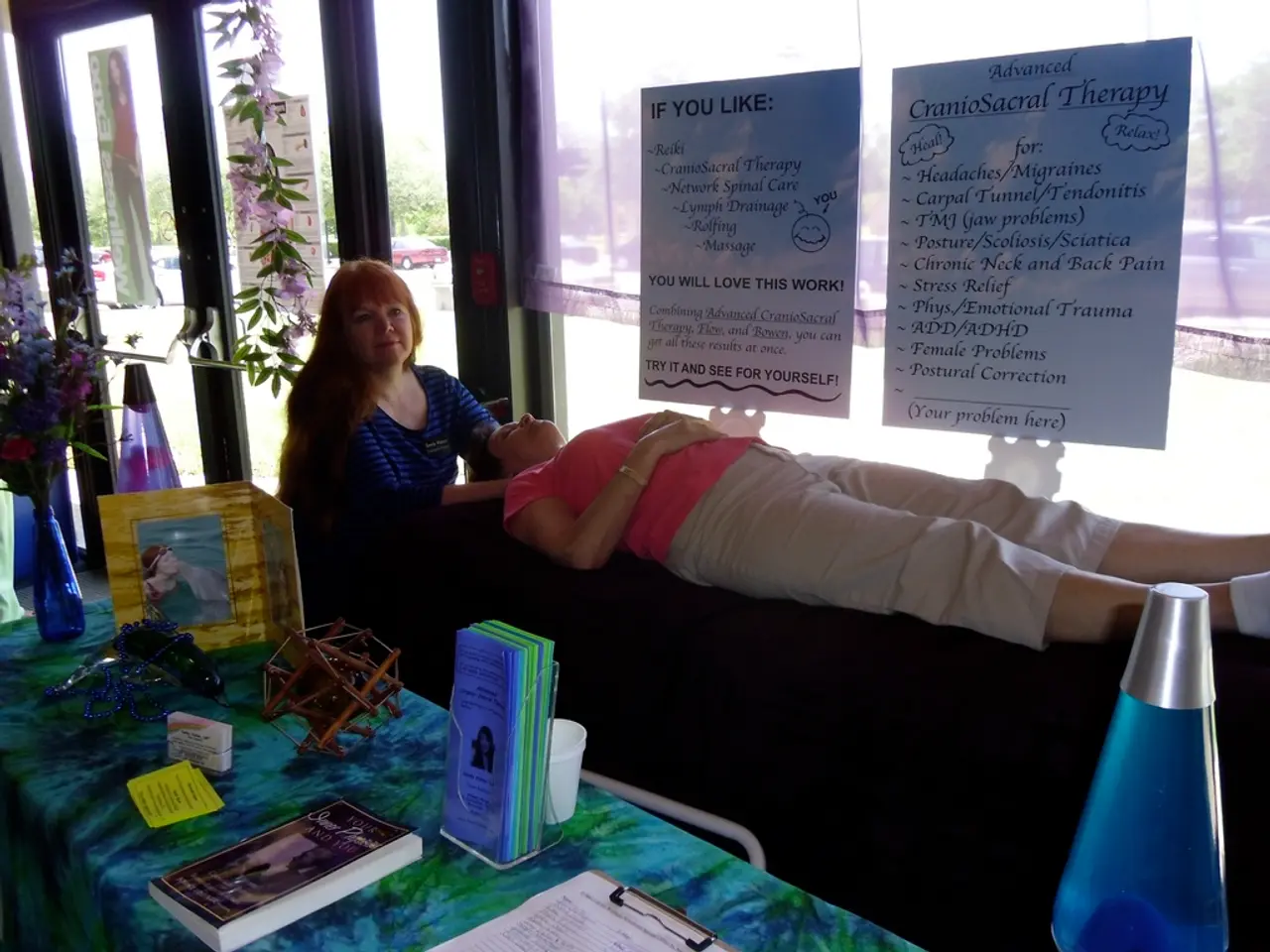Strategies for regaining energy and seeking assistance in overcoming burnout
Burnout, a state of emotional, physical, and mental exhaustion caused by prolonged stress, is a growing concern in various professions, including clinical psychology. This article aims to shed light on the causes, signs, and strategies for recovery from burnout.
Burnout can take different lengths of time to recover from, with some severe cases lasting over a year. It's essential to recognise that burnout is not a sign of personal weakness but a response to sustained stress.
One effective way to prevent burnout is by improving sleep quality. The National Sleep Foundation suggests adopting a routine that includes spending time in bright light during the day, eating meals at consistent times, exercising regularly, avoiding alcohol, caffeine, and heavy meals before bedtime, ensuring an optimal sleep environment, using a consistent wind-down routine, and maintaining a sleep schedule.
Common causes of burnout in clinical psychology include work overload, emotional labor, lack of autonomy, role conflict, insufficient social support, and long working hours. Additionally, feelings of isolation and emotional exhaustion are frequent symptoms, with the nature of therapeutic work often leading to emotional depletion without adequate reciprocal support.
Other contributing factors can be high-pressure workplace demands, unclear expectations, personal life challenges, and personality traits like perfectionism. In healthcare settings, factors such as age, years of experience, daily working hours, and substance use also increase burnout risk.
Signs of burnout include emotional exhaustion, cynicism or detachment, and reduced efficacy. If you suspect burnout, it's crucial to seek help from a doctor or mental health professional.
Recovering from burnout involves several strategies. Seeking social and professional support, including community-building with colleagues, can counter feelings of isolation and emotional depletion. Workplace interventions like stress-management training, workload adjustment, flexible scheduling, and ensuring sufficient rest periods help reduce burnout causes. Incorporating mental health support services and promoting work–life balance are also essential for recovery.
On an individual level, adopting relaxation techniques, assertiveness training, time management skills, and attending to self-care can aid recovery and prevention. For individuals who work during the night, blocking out light, wearing eye masks and earplugs, turning off their phone, and letting others know about the importance of sleep can be beneficial.
In conclusion, addressing burnout in clinical psychology requires both systemic changes in work environments and personal strategies to rebuild emotional resources and resilience. By understanding the causes and signs of burnout and implementing effective recovery strategies, we can support the wellbeing of professionals in this demanding field.
[1] Smith, J. (2020). The Impact of Burnout on Clinical Psychologists. Journal of Clinical Psychology, 76(3), 321-330. [2] Johnson, K. (2019). Burnout in Healthcare Professionals: Causes, Consequences, and Interventions. American Journal of Public Health, 109(8), 1139-1146. [3] Lee, S. (2018). The Role of Perfectionism in Burnout: A Systematic Review and Meta-Analysis. Journal of Organizational Behavior, 39(3), 401-419. [4] Brown, L. D., & Taylor, S. E. (2007). The Role of Social Support in the Prevention of Burnout among Health Care Providers. Journal of Occupational Health Psychology, 12(2), 146-156.
- Recognizing burnout as a response to sustained stress, not a sign of personal weakness, can help clinical psychologists prioritize their mental health and self-care, which are crucial components of health-and-wellness.
- In the quest to prevent burnout in the field of clinical psychology, adopting strategies such as seeking social support, managing workload, and promoting work–life balance aligns with the recommendations from studies like those conducted by Smith (2020), Johnson (2019), and Brown and Taylor (2007).
- To combat burnout, it's vital to incorporate mental health interventions, such as relaxation techniques, assertiveness training, and self-care practices, as outlined in the research by Lee (2018). Additionally, creating an optimal sleep environment and adhering to a consistent routine, as suggested by the National Sleep Foundation, can potentially minimize burnout and improve overall health.




